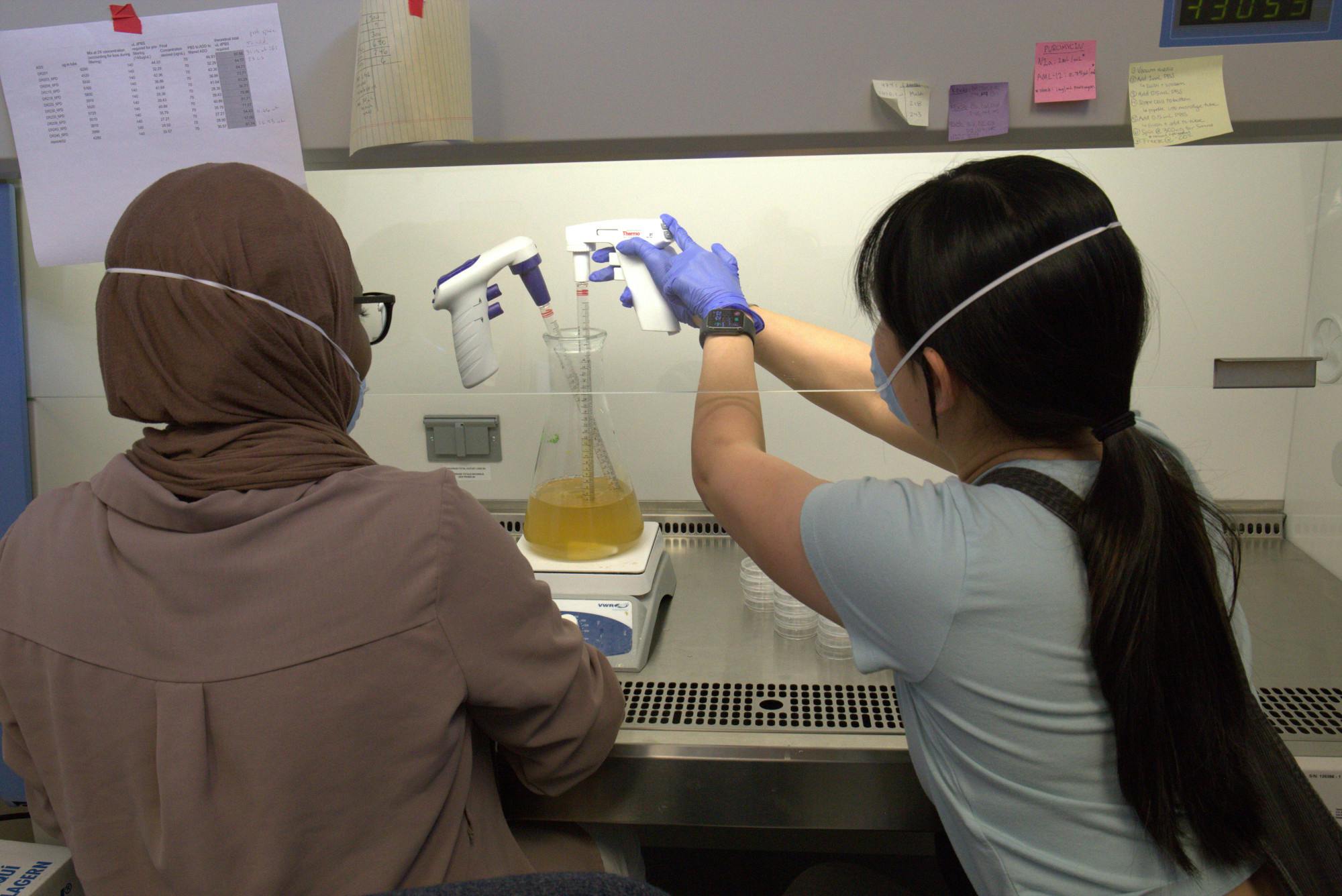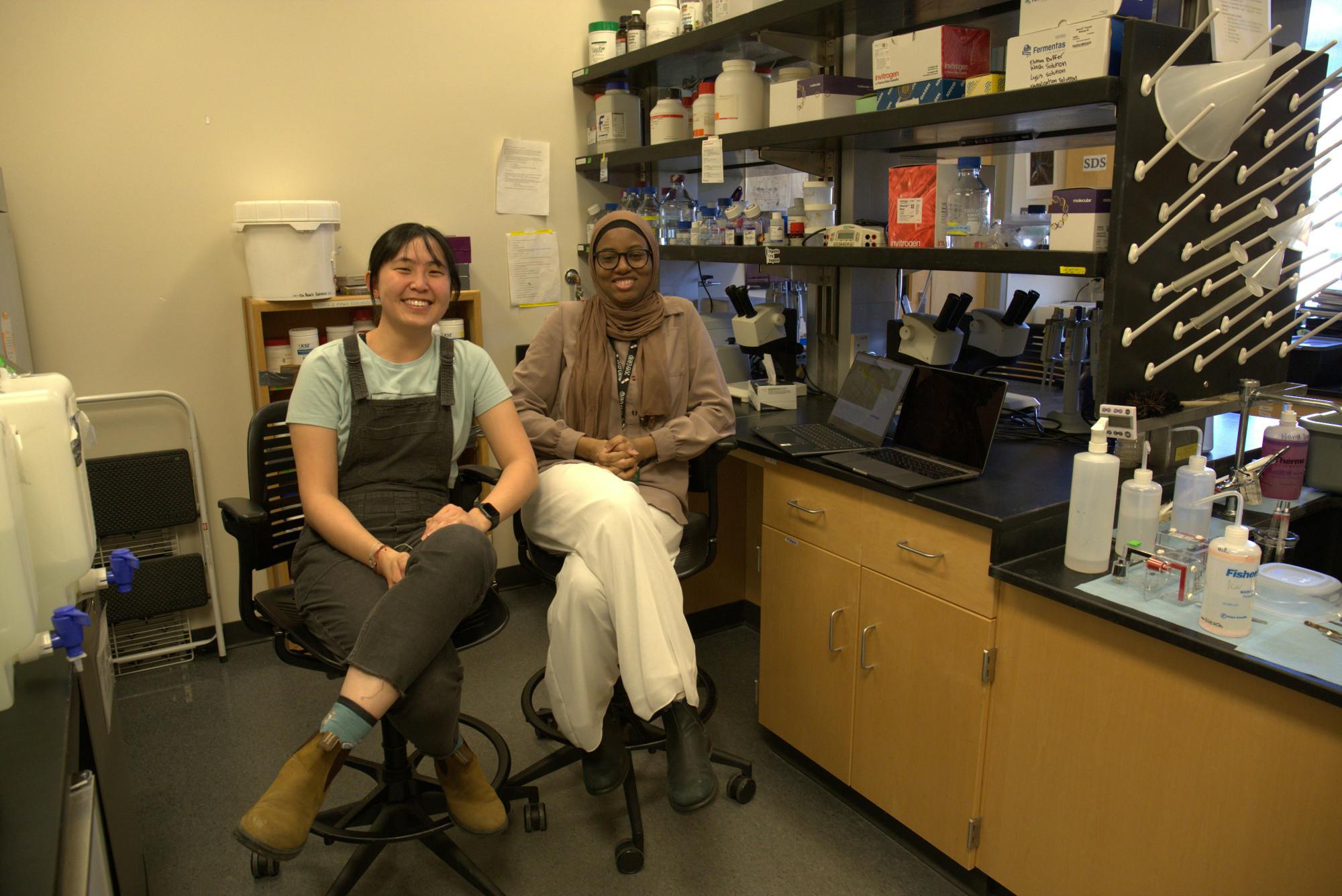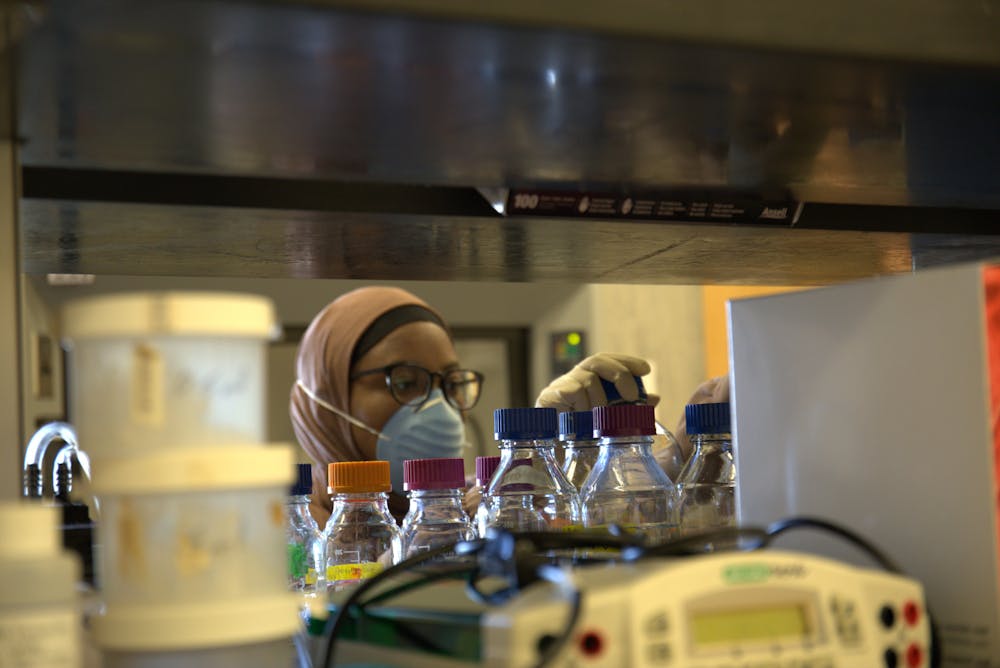The weekend can be a time for students to relax from a busy school week. It can be time to catch up on some homework and visit with friends. For Western Washington University students who do research, it means getting up at 8 a.m., traveling back to campus and running experiments.
Aicha Tokar Falatah and Meigan Butler are behavioral neuroscience majors at Western working at a research lab on campus. They are studying the multigenerational impact of in-utero stress using C. elegans, a microscopic nematode roundworm.
The nematodes all have the same amount of cells and have short lifespans, making them a good basis for behavioral research.
Last summer, Falatah was awarded a grant for undergraduate summer research through the behavioral neuroscience department and started working on the project. Butler joined a few months ago.
“I’ve only been in this lab five months and it already feels like home on campus,” Butler said.
The lab Falatah and Butler are a part of is known for their loud energy, according to professor of behavioral neuroscience Jacqueline Rose, who manages the lab.
The lab environment, consisting of two master’s students and 12 undergraduates, may be loud, but work still gets done.
Falatah and Butler’s experiment analyzes two groups of nematodes, controlled and stressed, over four generations. To start the experiment, Falatah and Butler bleach the nematodes to have the eggs hatch at the same age, creating the first generation. The next generations are treated the same.

Western students Meigan Butler and Aicha Tokar Falatah make agar plates for their lab at Western Washington University in Bellingham, Wash., on April 22, 2024. Agar plates consist of a gel in a petri dish, and they are often used to grow bacteria. // Photo by Margaret Baumgartner
Each generation only lives for four days. The first generation of the stressed group is shaken for four straight hours, roughly 4% of their life, to simulate a stressed environment. The researchers were able to run the experiment four times and are now analyzing the videos taken of each generation to study the behavior of the nematodes.
“We only want to see how that first amount of stress affects everyone,” Falatah said. “If your great grandma got stressed, how does that affect you?”
The hypothesis is that over multiple generations the nematodes will show progressively less stress.
Falatah feels that the research relates to her own experience. Butler echoed her statement.
“I’m adopted and I’m curious to know on a personal level how stress levels are affected from this sort of generational idea and how much of it is environmental,” Butler said.
Even though they are studying stress, the lab is a safe place for all those involved, according to Falatah.
It’s also a place where mistakes are accepted. Research isn’t going to work out every time, Rose said.

Aicha Tokar Falatah and Meigan Butler in their on-campus lab at Western Washington University in Bellingham, Wash., on April 22, 2024, where they are analyzing research videos. These videos help the two study the behaviors of the nematodes from their experiment. // Photo by Margaret Baumgartner
Falatah explained that work gets done, but she and the other students don’t lose the love for what they are doing.
“We’re all learning as we go a lot of the time, so mistakes can be made and it’s not the end of the world,” Butler said.
Rose wants to ensure that her lab is a place where students feel supported and have a safe learning environment. She finds that when people have this type of environment, the quality of work is better.
“It’s one of those soft qualities of a lab that can really affect the productivity and the motivation of students and even the care that they take with their experiments,” Rose said.
Labs are one of the best places on campus for students to figure out what they truly want to do, according to Falatah.
Before coming to the lab, Butler was unsure what to do but knew she wanted to get lab experience.
The starting point for finding a lab is research. According to Rose, students should discover what they’re interested in and then broaden it to find a lab that interests them.
Research can be personal and create a community of support. For Rose, research became an interest early on in her career.
“If you didn’t do it, then you wouldn’t know. It’s like leaving a puzzle undone,” Rose said.
Margaret Baumgartner (she/her) is a science reporter for The Front. She is majoring in news/editorial journalism and environmental science. Outside of reporting, Margaret enjoys hanging out in The Planet newsroom, eating apples or playing video games. You can contact her at margaretbaumgartner.thefront@gmail.com.






